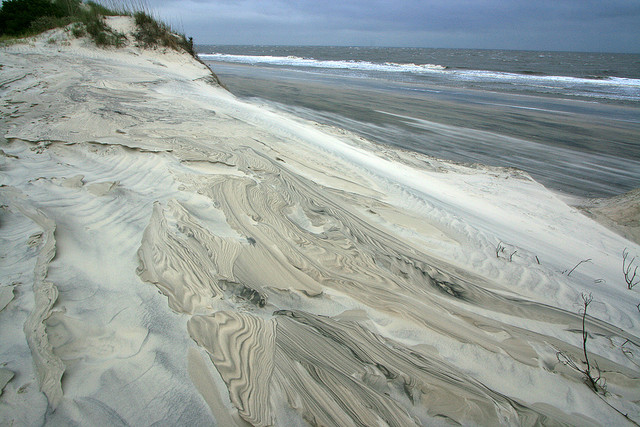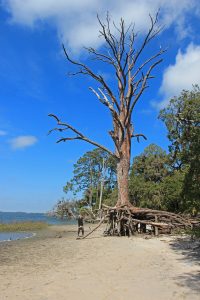Scientists Work to Understand Conservation Decision Making in the Face of Sea-Level Rise

What happens to the value of coastal habitat and wildlife as shorelines continue to be lost to rising sea levels and increasingly frequent extreme weather events? This question is particularly important for coastal National Wildlife Refuge managers serving on the front line of global change impacts to our nation’s natural resources. Their job is made increasingly difficult by factors such as complex and interacting biological and physical systems coupled with human systems, as well as a limited availability of conservation resources.
To help understand and address these problems, a research team is working together with managers on a project, Understanding Conservation Management Decisions in the Face of Sea-Level Rise Along the U.S. Atlantic Coast, funded by the Northeast and Southeast Climate Science Centers.
As an initial step in this project, a workshop was held in 2014 which brought together researchers and managers to articulate a management decision problem that would form the basis of a multi-year effort to assist coastal refuge managers in addressing their long-term concerns. Together, the participants developed a prototype decision structure to explore issues of scale, uncertainty, objectives, alternatives and trade-offs to help guide more prescriptive and transparent decision-making. Cape Romain National Wildlife Refuge in South Carolina was used as a focal site for this exercise, although general applicability to other coastal refuges was also a key focus.
During the workshop, participants identified four primary refuge objectives for maintaining biological integrity as well as the need to expand the concept of refuge value to a broader stakeholder audience. They also developed performance metrics to be used with different prototype decision tracks, mapped alternative decision management actions related to refuge expansion, and evaluated trade-offs and constraints in order to find optimal solutions. The insight gained from the workshop aided in the creation of a list of recommendations about what additional work should be considered in order to further improve a decision structure that better reflects the true complexities of managing current crises well into the future.
Find out more about this workshop in the Workshop Report, located on the project page.
